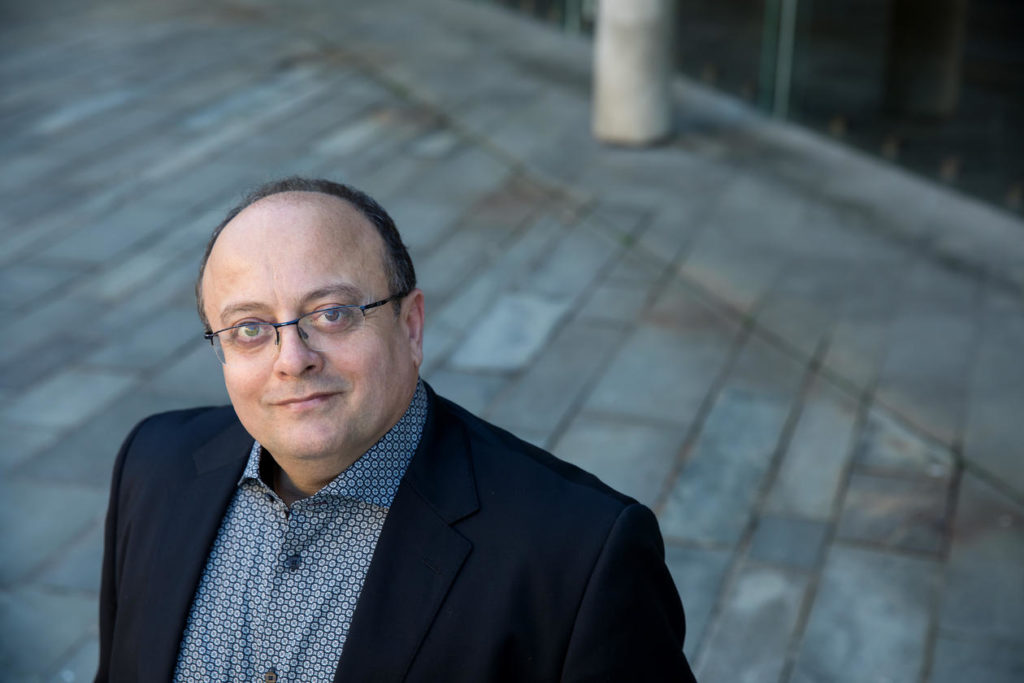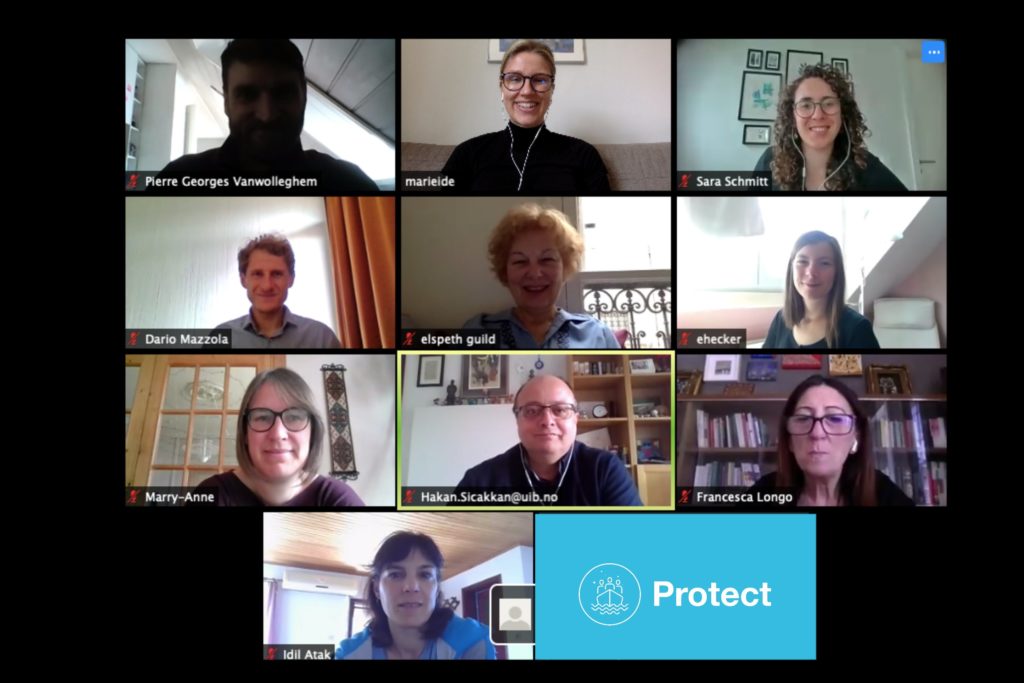Project leader’s note
By project leader Hakan G. Sicakkan. Photo: Eivind Senneset

PROTECT had an excellent kick-off with a conference at the Royal Academies in Brussels on 9 March 2020. We saw already then that we were operating in a tough global-politics context. Feedback and support from stakeholders like the UNHCR, the European Commission, the European Council on Refugees and Exiles, and the international scientific community showed us we were focusing on not only scientifically but also politically and practically relevant aspects of international protection.
Although many conference-registrants were not able to participate physically because of the Covid-19 lockdowns that started just before the kick-off date, many stakeholders that we wanted to reach were there with us. After the kick-off, we used the first six months of the project to develop our research, communication, and coordination tools and to extend our international stakeholder network.
Our theory and concept papers, survey questionnaires, big media-data and institutional data collection grids, interview guides, and detailed research plans including Covid-19 contingency plans are now in place. Starting in September, we will collect and analyze data.
As the second wave of the pandemic is underway, we may have to either postpone or digitize some of the activities that require face-to-face interactions. Despite this, we are confident that we will be able to conduct much of our research as planned and present the preliminary results to the international community in our mid-term conference in Toronto in August 2021.
I have previously initiated and led two other large-scope projects funded by the European Union’s framework programs. I have also seen many other international projects in operation. But I have never seen a project group and coordination staff with this level of relevant skills, enthusiasm, engagement, curiosity, and willingness to collaborate.
This is why I believe we are able to make significant discoveries about how to navigate strategically within today’s turbulent global politics, which legal and institutional frames to adopt, which transnational networks and alliances to build, and which discourses to endorse and promote, in order to achieve the goals of the United Nations’ Global Compact on Refugees.
I truly look forward to seeing the first results of my colleagues’ research and to contributing to their work in all the ways that I can.
Hakan G. Sicakkan, project leader of PROTECT.
PROTECT was officially launched in February 2020. Since then, the PROTECT researchers have been working and researching remotely during the Corona-induced lockdowns, which have affected countries and institutions in many ways. Despite the unusual circumstances, the consortium has progressed with their research and respective Work Packages and Deliverables – all while exploring new digital spaces for interaction and sharing across countries and time zones. Below you can explore the status and progress of PROTECT’s individual Work Packages and read about what is next on the agenda for our researchers.
Digital interaction in pandemic times
By Executive Scientific Coordinator Pierre Van Wolleghem
During the lockdown period the PROTECT researchers have interacted weekly during our project seminars, each focused on different aspects and Work Packages of our project.

The global pandemic has profoundly affected the way workers go about their tasks. In the face of unprecedented conditions, the coordination staff of PROTECT decided to put in place online weekly seminars as a way to stay connected with its researchers, be they located a couple of kilometers or thousands of kilometres away from each other. Thanks to the incredible commitment and enthusiasm of PROTECT’s researchers, these seminars turned out to be a formidable tool to share and discuss our progress in a friendly and constructive manner.
Several of the seminars have been made available on PROTECT’s social media as video and audio presentations. Among these are Professor Elspeth Guild’s discussion on the status of international protection of refugees, migrants and asylum seekers during the Corona lockdown and Dr. Boris Mance presentation of the digital platform Event Registry, which is deployed by PROTECT’s Ljubljana and Lund team to map actors and discourses present in traditional media and social media currently shaping the discourse on international protection of refugees. Dr. Daniela Irrera, expert of the role of NGOs and representing the University of Catania team, gave a presentation on the changing role of NGOs during the Corona lockdown, explaining that NGOs are playing a bigger and more innovative role in global crisis management in the absence of active state actors.
